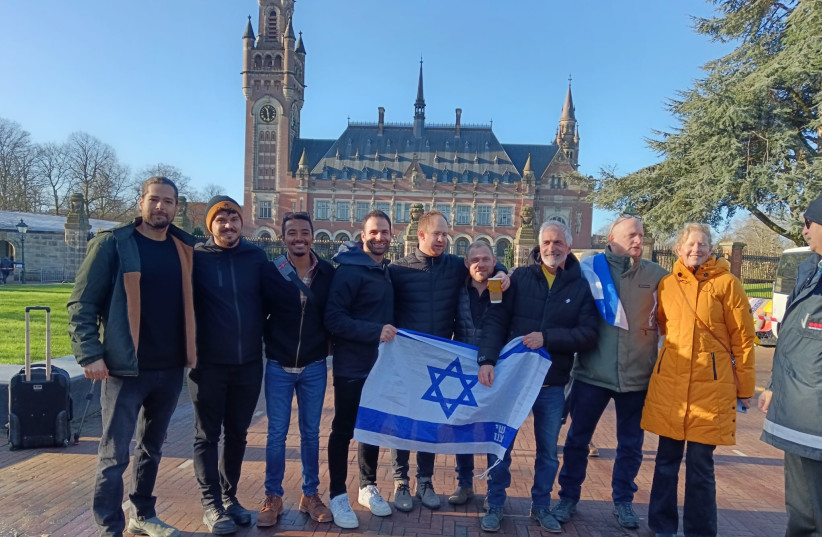ICJ asks Israel to prevent genocide, doesn’t order end to Gaza war
The International Court of Justice (ICJ) on Friday issued a provisional order that Israel must refrain from acts that could possibly lead to genocide but fell short of demanding that it stop the war.
It called on Israel to take six provisional actions, including taking every possible step to stop the killing, injuring, and afflicting unlivable conditions on Palestinians in Gaza.
Israel must take all measures to punish any direct incitement to genocide against Palestinians as well as assure the provision of basic services and humanitarian aid. Israel must present to the Court a report within a month on the measures it has taken.
Still, the mere issuing of a provisional order is viewed as a harsh diplomatic blow for Israel, one that gives South Africa’s genocide claim tacit legitimacy.
The ruling is legally binding and can not be appealed, but is difficult to enforce.
It represents the first phase of a protracted legal process triggered by South Africa’s December 29 written ICJ submission accusing Israel of genocidal acts in the Gaza Strip and illegal displacement of populations.
Following the complaint, the ICJ at The Hague held a hearing on January 11 and 12 to allow both Israel and South Africa to present their cases.

After ruling on South Africa’s request for provisional measures, the ICJ will now start deliberating on the general South African genocide complaint. Deliberations are expected to take several months, perhaps even two or three years.
Dozens of journalists arrived at the Hague for the ruling, with several TV crews standing outside the court. Hundreds of anti-Israeli activists also arrived at the small plaza in front of the building. Separated by fences and local police, between 100 and 150 people, including Israelis, Dutch Jews, and even regular Dutch citizens, came to support Israel.
The ruling was read by the President of the ICJ Joan Donoghue, who started with the motivations for the decision adopted by the panel of 17 judges and concluded with the court’s ruling. After that, the court’s clerk read a summary of the decision in French.
South Africa’s genocide case
The genocide accusation marks the first time that a state party to the court has submitted a claim against Israel at the ICJ.
The ICJ, however, has issued a non-legally binding advisory opinion against Israel at the request of the United Nations General Assembly in 2004 and is now in the process of authoring a second one.
The legal weight of this case is different both because binding rulings are at stake and because South Africa and Israel are signatories to the 1948 Convention against Genocide.
This signature allows South Africa to file a claim against the Jewish State and obligates Israel to adhere to the ICJ’s dictates on issues relating to genocide.
The fixed panel of the ICJ was joined by two ad-hoc justices appointed by Israel and South Africa. Israel picked former Supreme Court President Aharon Barak as its representative on the panel. Also, Israel chose international law specialist British Malcolm Shaw to lead its legal team.
Similarly to the January 11 and 12 hearings, activists on both sides have been demonstrating since Friday morning outside the Court in the Hague. A delegation of IDF reserve soldiers who had fought in Gaza recently also arrived at the place, calling the South African complaint false, biased, and unfounded.
South African Foreign Minister Naledi Pandor said she had hoped that the Court would order Israel to stop the fighting, but refused to say she was disappointed by the provisional measures adopted. ‘’The Court has given very very direct instructions. We are satisfied that the provisional measures that we sought to be addressed, would be addressed by the Court. I believe that if you read the convention very carefully, the matter of how a war or conflict is conducted is not elaborated. I would have wanted the word cessation to be included in the judgment. ‘’
Asked by the Jerusalem Post if South Africa now intended to sever diplomatic ties with Israel, the minister said ‘’I don’t think it’s a matter between South Africa and Israel here. All your questions are about Israel, but the real issue is Palestine, Palestinians who are being killed every day. The people of Palestina who are denied food, water, and energy, that is the critical issue we should all focus upon.’’





Comments are closed.